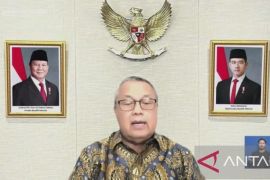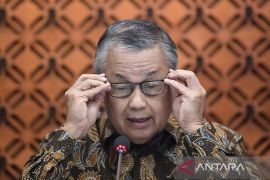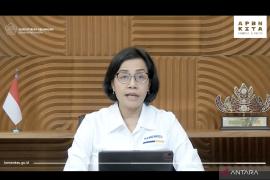Senior Deputy Governor of the central bank Mirza Adityaswara said Commercial Securities Market (SBK) was once introduced in the country in 1998 but did not work well.
Finally SBK trade was completely stopped following the 1998 monetary crisis, Mirza said here on Monday.
The Bank Indonesian regulation on SBK trade concerns only SBK trade through banks . No regulation yet on SBK trade through non bank financial corporations or agencies.
"At that time, banks offered commercial papers of its clients," Mirza said at a seminar on SBK .
Therefore, the central bank thinks that the SBK regulation of 1995 needs to be adjusted to the present condition, he said, adding SBK regulation and control also are necessary to promote the management of SBK market to give greater confidence to investors in investing in SBK instrument.
Mirza said there are around Rp300 trillion - Rp350 trillion in liquidity in the country returning to Bank Indonesia.
He said he hoped that the fund could return to the system or be utilized effectively for short term financing in the financial market.
"It is an irony if we see this country still need foreign funds but there is still fund returning to Bank Indonesia," he said.
Head of Bank Indonesia Division of Financial Market Development Nanang Hendarsah said confidence in SBK is still low because of the trauma of the 1998 crisis.
The role of the rating agency in convincing investors is also not yet significant, Nanang said.
"As a result investors hesitate to invest in SBK and the liquidity of SBK market would remain low," he said.
In addition SBK instrument has not been familiar in the domestic financial market . It is rarely used.
SBK once issued by a state company in 2005-2006, was more as an alternative to failure in the plan to issue bond on lack of support in market.
"The purpose of regulating SBK market is to develop credible SBK market that could recover the confidence of both the issuers and investors, that the SBK market could serve as an effective and efficient source of financing to support macro stability and increase effectiveness of transmission of monetary policy," he said.(*)
Editor: Heru Purwanto
Copyright © ANTARA 2016











